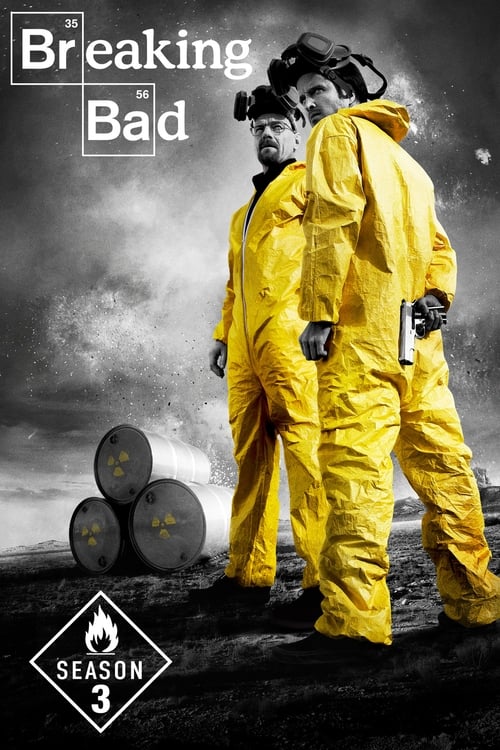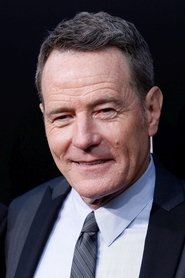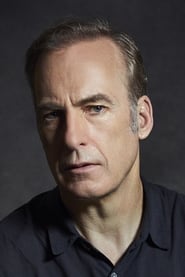
Ask Your Own Question
What is the plot?
The season opens with a flashback to the aftermath of the plane crash, which is a direct consequence of the events from Season 2. Walter White is seen in a daze, grappling with the weight of his actions. The scene shifts to the present, where Walt and Jesse Pinkman are dealing with the fallout from the death of their former partner, Jane Margolis. Walt is haunted by guilt, and his relationship with his wife, Skyler, is strained as she remains unaware of his criminal activities.
Walt's brother-in-law, Hank Schrader, continues his investigation into the Albuquerque drug scene, which puts pressure on Walt. Meanwhile, Jesse is struggling with his grief over Jane's death and is trying to cope with his addiction. He begins to spiral further into depression, leading him to make reckless decisions. Walt, feeling responsible for Jane's death, attempts to reach out to Jesse, but their relationship is fraught with tension.
As the season progresses, Walt and Jesse are forced to confront their new meth production operation. They are introduced to a new distributor, Gustavo "Gus" Fring, who is a highly organized and professional drug lord. Gus offers them a chance to produce meth in a state-of-the-art lab, but he is also calculating and dangerous. Walt is initially wary of Gus but sees the potential for profit and agrees to the partnership.
Skyler becomes increasingly suspicious of Walt's behavior and begins to investigate his activities. She discovers that he has been lying about his cancer treatment and is involved in illegal activities. This leads her to confront Walt, who continues to manipulate her by claiming he is doing everything for the family. Skyler's internal conflict grows as she tries to reconcile her love for Walt with the reality of his actions.
Jesse, meanwhile, is trying to distance himself from the drug scene but finds it difficult. He begins a relationship with a woman named Andrea, who has her own struggles with addiction. Their relationship offers Jesse a glimpse of hope, but he is still haunted by his past and the choices he has made. He tries to get clean but ultimately relapses, which strains his relationship with Andrea.
As Walt and Jesse ramp up their meth production, they face challenges from rival dealers and law enforcement. Hank's investigation intensifies, and he begins to close in on the identity of the elusive "Heisenberg," unaware that it is actually Walt. The tension builds as Hank's determination to catch the drug kingpin puts him on a collision course with Walt.
In a pivotal moment, Walt's ego and pride lead him to make a dangerous decision. He confronts a rival dealer, Tuco Salamanca, in a violent showdown. Walt's transformation into a more ruthless figure is evident as he uses his knowledge of chemistry to create a volatile reaction that incapacitates Tuco. This act solidifies Walt's reputation in the drug world but also deepens his moral descent.
The season culminates in a series of dramatic confrontations. Skyler discovers the truth about Walt's criminal activities, leading to a major confrontation between them. She is devastated and feels betrayed, forcing Walt to confront the consequences of his actions. Meanwhile, Jesse's relationship with Andrea deteriorates as he struggles with his addiction and the impact of his choices.
The final episodes of the season see Walt and Jesse's partnership with Gus becoming increasingly complicated. They are drawn into a web of deceit and danger as they navigate the treacherous world of drug trafficking. The season ends on a cliffhanger, with Walt's life hanging in the balance as he faces the repercussions of his decisions, setting the stage for the intense conflicts to come in the following seasons.
What is the ending?
At the end of Season 3 of Breaking Bad, Walter White confronts his former partner, Jesse Pinkman, and the two have a tense standoff. Walter's actions lead to significant consequences for both characters, culminating in a violent confrontation with Gus Fring. The season concludes with Walter's transformation into a more ruthless figure, while Jesse grapples with his own moral dilemmas.
As the final episodes of Season 3 unfold, the tension escalates dramatically. The season culminates in the episode titled "Full Measure."
Scene 1: The episode opens with Walter White, now fully entrenched in the drug trade, grappling with the consequences of his choices. He is increasingly isolated, his relationships strained, particularly with his wife, Skyler, who is unaware of the full extent of his criminal activities. Walter's desperation grows as he realizes that he must take drastic measures to secure his position in the drug world.
Scene 2: Meanwhile, Jesse Pinkman is struggling with the aftermath of the death of his girlfriend, Jane. He is haunted by guilt and is trying to find a way to cope with his grief. Jesse's emotional state is fragile, and he is caught between his loyalty to Walter and his own moral compass. He feels the weight of his decisions pressing down on him, leading to a sense of hopelessness.
Scene 3: Walter's relationship with Gus Fring becomes increasingly fraught. Walter knows that Gus is a dangerous man, and he must navigate this treacherous partnership carefully. In a pivotal moment, Walter realizes that Gus is planning to eliminate him. This revelation ignites a fierce determination within Walter to take control of the situation before it spirals out of his grasp.
Scene 4: In a tense meeting, Walter confronts Gus, attempting to assert his dominance. The atmosphere is thick with tension as Walter lays out his intentions, but Gus remains calm and collected, showcasing his own power. Walter's bravado is met with Gus's cold indifference, highlighting the stark contrast between the two men. Walter's desperation is palpable as he realizes that he is not as in control as he believed.
Scene 5: The climax of the season occurs when Walter makes a fateful decision. He orchestrates a plan to eliminate his enemies, showcasing his transformation into a more ruthless figure. In a shocking turn of events, Walter's actions lead to the death of a key character, marking a significant turning point in the narrative. This moment solidifies Walter's descent into moral ambiguity, as he chooses to prioritize his survival over the lives of others.
Scene 6: The season concludes with a powerful visual of Walter standing in the aftermath of his choices. He is now a man transformed, embodying the darkness that has seeped into his life. Jesse, on the other hand, is left to grapple with the consequences of their actions. The emotional weight of their decisions hangs heavy in the air, leaving both characters at a crossroads.
Fate of the characters: Walter White emerges as a more formidable and dangerous figure, fully embracing his identity as Heisenberg. Jesse Pinkman, however, is left in turmoil, struggling with the moral implications of their actions and the loss of those he cared about. The season ends with a sense of foreboding, as both characters are irrevocably changed by their experiences, setting the stage for the conflicts to come in the subsequent seasons.
Is there a post-credit scene?
In "Breaking Bad" Season 3, there is no post-credit scene. The episodes conclude without any additional scenes after the credits roll. Each episode focuses on the intense and evolving dynamics between the characters, particularly the struggles of Walter White and Jesse Pinkman as they navigate the drug trade and their personal lives. The storytelling is tightly woven, with each episode ending on a note that propels the narrative forward, but there are no extra scenes to follow the credits.
What is the significance of the 'I am the one who knocks' scene?
The 'I am the one who knocks' scene is a pivotal moment for Walter White's character development in Season 3. In this scene, Walter asserts his dominance and transformation into a ruthless drug lord, contrasting sharply with his earlier persona as a meek chemistry teacher. This declaration marks a turning point in Walter's journey, showcasing his embrace of power and the moral decay that accompanies it, as he fully steps into the role of Heisenberg.
What happens to Jesse Pinkman after he kills Gale Boetticher?
After Jesse Pinkman kills Gale Boetticher in the season finale, he is left in a state of shock and guilt. He grapples with the moral implications of his actions, feeling both relief and horror at having taken a life. This act solidifies his role in the drug trade and deepens his entanglement with Walter White, as they both become more deeply involved in the violent world of meth production.
How does Walter White's relationship with Skyler evolve in Season 3?
In Season 3, Walter White's relationship with Skyler becomes increasingly strained. Skyler is suspicious of Walter's activities and begins to investigate, leading to a growing rift between them. Walter's lies and manipulations push Skyler away, and she becomes more involved in her own life, including her work at the car wash and her interactions with Ted Beneke, which further complicates their marriage.
What role does Gus Fring play in Season 3?
Gus Fring plays a pivotal role in Season 3 as a major drug distributor who becomes both an ally and a threat to Walter White. He offers Walter a lucrative opportunity to expand his meth operation, but also imposes strict conditions and expectations. Gus's calm demeanor and strategic thinking contrast sharply with Walter's increasingly reckless behavior, setting the stage for a tense power struggle between the two.
How does the introduction of the character of Mike Ehrmantraut affect the story?
The introduction of Mike Ehrmantraut in Season 3 adds a layer of complexity to the narrative. As a fixer for Gus Fring, Mike is a seasoned professional who operates with a cold efficiency. His presence serves as a reminder of the stakes involved in the drug trade and the lengths to which characters like Walter and Jesse must go to survive. Mike's interactions with Walter and Jesse highlight their vulnerabilities and foreshadow the escalating conflict.
Is this family friendly?
"Breaking Bad" Season 3 is not family-friendly and contains several potentially objectionable or upsetting scenes and aspects that may be distressing for children or sensitive viewers. Here are some key elements:
-
Violence: The season features graphic violence, including intense confrontations, shootings, and physical altercations that can be quite disturbing.
-
Drug Use: The show revolves around the illegal drug trade, depicting drug manufacturing and use, which may not be suitable for younger audiences.
-
Moral Ambiguity: Characters engage in morally questionable behavior, including manipulation, betrayal, and criminal activities, which can be unsettling.
-
Death and Loss: There are significant themes of death, including the impact of violence on families and the emotional fallout from loss, which can be heavy and emotional.
-
Emotional Turmoil: Characters experience intense emotional struggles, including anxiety, depression, and existential crises, which may be difficult for some viewers to process.
-
Language: The dialogue includes strong language and profanity, which may not be appropriate for children.
-
Sexual Content: There are scenes that involve sexual situations and suggestive themes that may not be suitable for younger viewers.
These elements contribute to the overall mature themes of the series, making it more appropriate for adult audiences.



















